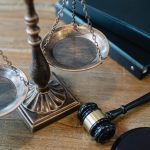The fake news pandemic
Each and every day there is debate in both mainstream and social media about the authenticity of information shared in the public domain. Fake news is gaining greater traction as we move towards a highly polarised electioneering period.
Fake news peddling has become a lucrative industry online; people create blogs and social media handles to disseminate fake news with the intention to attract a following and revenue from online advertisements on the platforms. To them the negative effects of the fake news is not an issue for consideration. Social media platforms on the other hand profit from the constant engagement users have with such content as it creates higher revenue for the social media platforms through advertisements that are set side by side with the fake news.
Simply defined, fake news is any information that is created and disseminated with the aim to deliberately misinform or deceive audiences. Often fake news gravitates towards damaging the reputation of individuals or organisations, influencing social, economic views and political opinions plus marketing substandard goods and services. The phrase ‘fake news’ has only gained notoriety with the advancement of digital communication. However, dissemination of misleading or incorrect information has existed for the longest time; previously referred to as ‘propaganda’.
How we handle fake news as a society has an impact on two fundamental rights and freedoms enshrined in the Constitution, the right to freedom of expression and the right to freedom of the press. Whatever we do to deal with fake news must be through the lenses of these two rights. The only rider to them is that while speech is a fundamental right, it does not extend to propaganda for war, incitement to violence, hate speech or advocacy of hatred that constitutes ethnic incitement, vilification of others or incitement to cause harm. Also, while exercising our right to freedom of expression we ought to respect the rights and reputation of others.
The State has constantly attempted to stifle speech that is critical of the government of the day through criminal proceedings. Some of the crimes that have previously been used by the State to regulate speech include criminal defamation, the crime of undermining the authority of a public official and the crime of misuse of a telecommunications device. All these crimes have since been declared to be unconstitutional by the Courts because they limited the right to freedom of expression.
Another example of the State seeking to regulate free speech is the enactment of the Computer Misuse and Cybercrimes Act, 2018. It is instructive to note that the Act has been subject litigation. One, its constitutionality was challenged but the High Court ruled that it is a constitutional law; an appeal lies at the Court of Appeal challenging this finding. Two, the Act was among the Acts suspended by the High Court for having been passed by the National Assembly without concurrence with the Senate.
Two provisions of the Cybercrimes Act are key in our discussion on fake news. One, on false publications, the Act states that a person who intentionally publishes false, misleading or fictitious data or misinforms with intent that the data shall be considered or acted upon as authentic, with or without any financial gain, commits an offence. Secondly, that a person who knowingly publishes information that is false in print, broadcast, data or over a computer system, that is calculated or results in panic, chaos, or violence among citizens of the Republic, or which is likely to discredit the reputation of a person commits an offence. At the beginning of the COVID-19 pandemic there are individuals who were charged under these fake news provisions. It will be interesting to see how the Court of Appeal will rule on the constitutionality of these two provisions or whether parliament with re-enact the Act to ensure concurrence between the National Assembly and the Senate.
The fundamental question that arises is how we ought to regulate fake news without limiting free speech outside the provisions of the Constitution. In an electioneering period, free political speech is critical. Should we even think about regulating fake news? Who even decides what fake news is and what it is not? The State and politicians generally often define fake news as any information that is critical to them or embarrasses them whether factual or not.
The free market of ideas and opinion exchange must thrive in a functioning constitutional democracy like ours. This said, fake news thrives where there is lack of credible information sources both online and offline; are we creating these credible sources? Most of the population lacks the skills to identify and flag fake news; but who is to carry out the public education initiatives on identifying fake news?
In last year’s USA elections, social media platforms flagged out and took down fake news posts. The social media platforms used the words such as ‘the claim about election fraud is disputed’ and ‘Election officials have certified Joe Biden as the winner of the U.S. Presidential election’ to flag fake news.
For fake news to be flagged, it means that the platforms ought to have moderators of content posted. Do we have social media platform moderators for content posted for Kenyan audiences and would these moderators be able to objectively assess the content? Would these moderators understand the prevailing political, cultural and tribal undercurrents?
While there may be tools available to combat fake news, they are not widely deployed in Kenya. Perhaps we should focus on the effects of the fake news and not the contents of the fake news?



